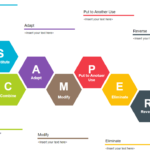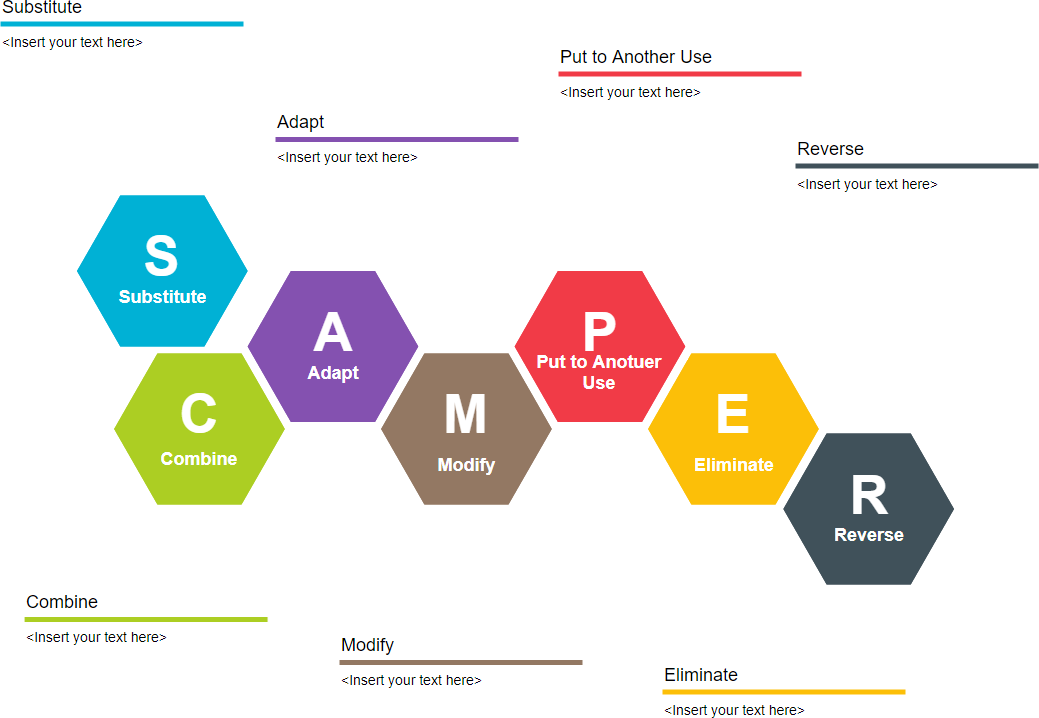Are you curious about the dynamic world of software testing? If so, you’ve likely encountered the pivotal role of a QA Automation Engineer Otta Playwright. With technology rapidly evolving, these professionals are at the forefront, ensuring that applications run smoothly and efficiently. Among various tools available, Playwright stands out as an essential player in this domain.
In today’s digital landscape, where user experience can make or break an application, mastering automation has never been more crucial. The demand for skilled QA Automation Engineers proficient with Playwright is skyrocketing. Whether you’re already entrenched in this field or considering diving into it, understanding how to leverage Playwright effectively can set you apart from the crowd.
Join us as we explore what it takes to thrive as a QA Automation Engineer Otta Playwright!
Understanding the Role of a QA Automation Engineer
The role of a QA Automation Engineer is crucial in today’s software development lifecycle. These professionals ensure that applications function as intended before they reach the end user.
They create automated tests to evaluate functionality, performance, and reliability. This not only speeds up the testing process but also enhances accuracy by minimizing human error.
QA Automation Engineers collaborate closely with developers and product teams. They provide insights on quality issues early in the development cycle, enabling proactive solutions.
Their work involves analyzing requirements, designing test cases, and implementing automation scripts using various tools. Playwright has become a popular choice due to its versatility and ease of use.
Their mission is simple: deliver high-quality software that meets user expectations while reducing time-to-market for new features or fixes.
The Importance of Playwright in QA Automation
Playwright has emerged as a game changer in the realm of QA automation. Its ability to handle modern web applications with ease sets it apart from traditional tools.
With Playwright, engineers can simulate real user interactions across multiple browsers simultaneously. This capability drastically reduces testing time while enhancing coverage and reliability.
Another significant advantage is its support for various programming languages like JavaScript, TypeScript, Python, and C#. This flexibility allows teams to integrate Playwright seamlessly into existing workflows.
Moreover, the tool boasts built-in features such as auto-waiting mechanisms and powerful selectors. These attributes help eliminate flaky tests—one of the biggest challenges in automation.
As digital applications become more complex, leveraging Playwright enables QA Automation Engineers to ensure higher quality standards throughout development cycles. The focus shifts from merely finding bugs to delivering exceptional user experiences.
Key Skills and Responsibilities
A QA Automation Engineer using Playwright must master a blend of technical and analytical skills. Proficiency in JavaScript or TypeScript is crucial, as these languages are fundamental for writing effective test scripts. Understanding the DOM and how web applications function enhances testing precision.
Creating robust automated tests is just one responsibility. Engineers also need to maintain existing test suites, ensuring they remain relevant as applications evolve. Debugging skills come into play when identifying issues within both the code and application under test.
Attention to detail cannot be overlooked. The ability to spot inconsistencies can save teams from potential pitfalls down the line. Additionally, collaboration with developers improves communication about bugs and feature requirements, fostering a more cohesive workflow.
Staying updated on Playwright features ensures engineers leverage new capabilities effectively, enhancing their automation processes further while maintaining high-quality standards across projects.
Mastering Playwright: Tips and Tricks for Efficient Automation
Mastering Playwright can significantly enhance your automation skills. Start by familiarizing yourself with its robust features. Understanding the architecture and capabilities will give you a solid foundation.
Utilize the built-in debugging tools to streamline your testing process. This allows you to identify issues quickly, saving precious time in the long run.
Another tip is to leverage parallelization for faster test execution. By running tests concurrently, you’re not only speeding up feedback loops but also optimizing resource utilization.
Don’t overlook the importance of good documentation practices. Maintain clear comments within your scripts, making it easier for others (and future you) to follow along.
Participate in community forums or groups focused on Playwright. Engaging with other professionals can provide valuable insights and help troubleshoot challenges more effectively. Collective knowledge is a powerful asset in mastering this tool.
Common Challenges and How to Overcome Them
QA Automation Engineers using Playwright often face various challenges. One common issue is dealing with flaky tests. These unreliable tests can lead to confusion and wasted time.
To combat this, establish a robust testing framework. Consistent test environments and proper synchronization techniques help ensure stability.
Another hurdle is managing the dynamic nature of web applications. Frequent updates can quickly render existing tests obsolete.
Regularly reviewing and updating your test cases ensures they stay relevant. Involve developers in the process for better alignment on changes.
Learning curves can be steep when adopting new tools like Playwright. Invest time in training resources or community forums to build confidence and skills.
Collaboration within teams also plays a crucial role in overcoming these challenges. Sharing knowledge boosts morale and enhances overall efficiency in QA processes.
Keeping Up with Trends
The field of QA automation is constantly evolving. As new technologies emerge, so do the tools and frameworks that help streamline testing processes. Staying updated with these trends is essential for any QA Automation Engineer Otta Playwright.
Participating in online communities can offer fresh insights. Forums and social media platforms often buzz with discussions around best practices, plug-ins, or updates related to Playwright. Engaging in these conversations can enhance your knowledge base significantly.
Additionally, attending webinars or virtual conferences allows you to learn from industry leaders directly. These sessions often cover emerging trends and showcase innovative techniques that improve efficiency.
Experimentation is another powerful way to stay ahead. By exploring new features released by Playwright or trying out different testing strategies, you keep your skills sharp and relevant in this fast-paced environment.
Becoming a Successful Engineer
To become a successful QA Automation Engineer using Playwright, start by immersing yourself in the tool. Familiarize yourself with its core features, such as multi-browser support and powerful automation capabilities.
Hands-on practice is key. Build sample projects to reinforce your understanding of Playwright’s API and functionalities. Experimentation will enhance your skills significantly.
Networking within the community can also be beneficial. Join forums or local meetups dedicated to testing and automation tools like Playwright. Engaging with peers offers insights that can accelerate your learning curve.
Stay updated on new releases and updates from the Playwright’s official documentation. This ensures you are aware of enhancements that could optimize your test processes.
Cultivate a mindset geared towards continuous improvement. Regularly seek feedback on your work, adapt to changes in technology, and refine your techniques for optimal results in automated testing scenarios.
How to Excel as a QA Automation Engineer
To excel as a QA Automation Engineer using Playwright, focus on building a solid foundation in JavaScript. Understanding the language deeply will enhance your ability to write effective test scripts.
Immerse yourself in Playwright’s documentation. It is packed with examples that can simplify complex tasks and improve your testing efficiency. Experimenting with its features will also expand your skill set.
Participate in online communities or forums dedicated to Playwright. Engaging with other professionals can provide insights into best practices and innovative solutions.
Regularly practice writing tests for different scenarios. The more you code, the better you’ll become at identifying edge cases and optimizing performance.
Embrace feedback from peers during code reviews. Constructive criticism fosters growth and ensures you stay on track with industry standards.
A Day in the Life of a QA Automation Engineer
Mornings for a QA Automation Engineer Otta Playwright often start with a quick stand-up meeting. The team gathers to discuss progress, blockers, and goals for the day. Collaboration is key here.
After the meeting, focus shifts to reviewing test cases. It’s essential to ensure that all scenarios are covered before diving into automation scripts.
Then comes the hands-on work with Playwright. Writing and debugging code takes center stage as engineers create robust test scripts that mimic user behavior across various browsers.
Afternoons may involve analyzing results from previous tests. Identifying patterns in failures helps refine future testing strategies.
As the day winds down, there’s often time for learning—whether it’s exploring new features of Playwright or brushing up on best practices in automation tools.
The rhythm is fast-paced yet rewarding, filled with problem-solving moments and teamwork that fuels continuous improvement in software quality.
The Future of Software Testing: QA Automation Engineer Otta Playwright
The landscape of software testing is rapidly evolving, and the role of a QA Automation Engineer Otta Playwright is at the forefront of this transformation. As organizations increasingly prioritize speed and quality in their development processes, automation will continue to play a critical role. The shift towards continuous integration and delivery means that automated testing tools like Playwright are more vital than ever.
Playwright’s capabilities allow for comprehensive end-to-end testing across various browsers and platforms. This versatility ensures that applications function seamlessly in real-world scenarios. With advancements in AI and machine learning, future QA Automation Engineers will likely leverage these technologies to enhance test coverage further.
Moreover, the importance of collaboration between development teams and QA engineers cannot be overstated. A strong partnership fosters an environment where feedback loops are shortened, resulting in higher-quality products delivered faster to market.
As we look ahead, upskilling will become essential for professionals aiming to excel as QA Automation Engineers using Playwright. Embracing new methodologies such as Behavior-Driven Development (BDD) can also pave the way for improved communication among stakeholders.
With each passing day, the demand for skilled engineers who understand both automation tools like Playwright and traditional testing practices grows stronger. Those willing to adapt will thrive in this dynamic field where technology continually shapes how we build applications.
In navigating this exciting journey ahead, staying informed about industry trends while honing practical skills will define successful careers as QA Automation Engineers Otta Playwright.










